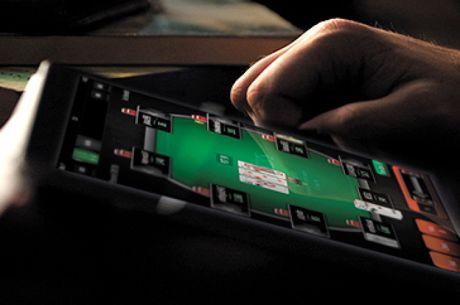
Oct 07, 2019 World-class poker players reach the pinnacle of their careers by working incredibly hard away from the poker table. You have to take the time to work through new concepts and drill the fundamentals of how a certain situation is played, in order to be able to apply that knowledge at game speed. Mar 03, 2018 How a World-Class Poker Pro Beat Addiction to Win Millions - Duration: 7:04. PokerListings 120,829 views. He Gets Pocket Aces THREE TIMES!!! High Stakes Poker Game. One of the goals of many poker players is to become good enough for consideration by a company like PokerStars. Such a sponsorship is a coveted one, as few are up for grabs during any given year, and most professional players who are members of Team PokerStars.
In my last column I covered five good reasons why some (in truth, most) poker players should not go pro. Today we'll cover five more reasons against doing so.
1. Your win rate is probably inflated because you are cherry-picking the time you play
So you've been averaging $20 an hour in your regular $1/$2 live game and winning at a consistently high rate online? That's great! However, that may not be indicative of what you'll earn when you are playing 40 or more hours a week to make your monthly nut. In fact, it probably isn't.
Most part-timers play around their full-time work schedules. That typically means they mostly play nights and weekends. They especially play on holiday weekends. When do you think the games are softest? That's right — those very times.
When you're forced to play full-time to make your expenses, you may not have the luxury of only playing when the games are best. You'll have to play at many other times as well, such as when few if any tourists or alcohol-softened regulars are in the room. You'll be up against other grinders like yourself who are trying to scratch out their salaries during the day. Or maybe even worse, you'll be playing against rocky retirees who are squeezing every white chip.
The fact is, your hourly win rate is likely to go down when you increase your hours.
2. Multipliers don't work as you think they do
It's easy to do the math. Let's see, you earned $200 in 10 hours playing $1/$2, so you should earn $800 hours for 40 hours, right? And in a year's time, playing for 50 weeks (generously giving yourself two weeks off a year), that comes to $40,000 a year. And that doesn't even count the extra money you can make in an occasional tournament and playing online at home.
You might also move up in stakes, going from $1/$2 to roughly double the stakes at $2/$5. That would have you increasing your hourly rate from $20/hour to $40/hour, wouldn't it? So you should easily earn the $40,000 you earn at your steady job. And the $40,000 is really like $50,000 because you won't have to pay taxes on it.
Wrong, wrong, and wrong. You do have to pay taxes, whether or not taxes are deducted. The IRS says you do. They can also legally collect back taxes if they catch you not paying, plus penalties and interest. But even if you think you'll get away with breaking the law, try borrowing money for a house or a car without any tax returns.
Also, as we've seen, more hours doesn't necessarily mean more hours at the same win rate. Stamina, focus, and concentration all come into play. You might find that when you work four times as many hours, you are half as strong a player at the end of the week as you are at the start of the week. You might even start to lose money over time.
The prospect of making more money per hour by moving up may also be an illusion.You will probably find the competition tougher as you move up. While the drag of the rake on your earnings will be relatively less, the drag on your earnings caused by playing against better players may be considerably greater. In fact, you might move up and start losing.
All of which is to say, don't start calculating your full-time earnings until you are actually working full-time.
3. Playing poker for a living becomes a job, and a job is... well... a job
You might not think this now, but many players actually find poker boring and unexciting when they do it for a living. It seems incredibly exciting when you're playing it for fun. It remains fun when you master it and start earning money. Few things feel as good as the positive feeling of winning a tournament or looking at your profits go up.
But when it becomes a job — your sole source of income — that feeling may change. Talk to those who have done it for five or more years, and who must do it. From my experience, having spoken with and interviewed hundreds of pros, though it remains an interesting and rewarding career for many, it is still a job (not an adventure), with all of the seriousness and responsibility of any job.
4. Variance happens
You've been playing seriously and winning for a few months, maybe even a year. But there can be long, devastating losing streaks as well. Talk to pros who have been on top of the world and then gone bust. The professional poker road is lined with people on the sides who have gone broke.
That's not saying all pros go broke. But so many of them do, at one time or another, because they aren't sufficiently capitalized to withstand the variance of a game that can be extremely cruel to even the best players.
Why risk throwing away your lifeline to a steady job until you have built a very, very, very stable safety net?
How To Become Poker Pro online, free
5. There are now many alternatives for the serious poker player that don't require 'going pro' full-time
Back in the day, before America's surge in gambling occurred around the 1990s and into the 21st century, if you really wanted to be a full-time professional poker player, you had only a few options. You either needed to tap into a tough, illegal, underground scene where you lived, or you had to move to Las Vegas or Southern California. There were a few other options (e.g., Seattle supported a few legal professionals), but that was pretty much it for the serious poker player.


That's no longer the case. There are decent low-, middle- and high-stakes legal public poker games, available 24/7, all across the United States today. Chances are, with riverboat gambling, charity poker rooms, casinos, liberalized gambling laws, and a constabulary that is much less earnest about cracking down on poker games, unless you live in the heart of the Bible Belt, you're probably less than a two-hour drive from at least a couple of decent legal games.
With the expanded popularity of poker on television and in popular culture, and all of the poker players it created, you probably have a few good underground games within a much shorter drive as well.
There's no longer a good reason to quit your job, pull up stakes, and start your life over again in a distant city. You can keep your job and play poker regularly in your off hours and days off. Why not do that, at least until you've earned a lot more money, for a much longer period of time?
A week has 168 hours in it. If your job takes up 40 hours and you sleep for another 56, that still leaves you 72 hours a week for playing poker. If you're really committed to playing poker, you can do it as a serious second job. Depending on your stamina and level of commitment (about which you have to be realistic), you can even work as many as 40 hours at it while keeping your day job.
Poker Pro Hrvatska
See if you can start earning as much at poker as you earn at the straight job, plus enough extra to cover all of the benefits you get at work. That should be your goal. When you hit it, if you still love playing poker, and you have saved at least half a year's pay to support yourself, and have a full bankroll for supporting your game, then and only then can you quit your day job.
Ashley Adams has been playing poker for 50 years and writing about it since 2000. He is the author of hundreds of articles and two books, Winning 7-Card Stud (Kensington 2003) and Winning No-Limit Hold'em (Lighthouse 2012). He is also the host of poker radio show House of Cards. See www.houseofcardsradio.com for broadcast times, stations, and podcasts.
Be sure to complete your PokerNews experience by checking out an overview of our mobile and tablet apps here. Stay on top of the poker world from your phone with our mobile iOS and Android app, or fire up our iPad app on your tablet. You can also update your own chip counts from poker tournaments around the world with MyStack on both Android and iOS.
Tags
cash game strategytournament strategylive pokeronline pokerbankroll managementmental gametiltpsychology
Comments are closed.